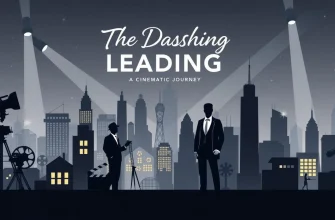The theme of power struggle has always been a compelling narrative in cinema, reflecting real-world dynamics of ambition, betrayal, and the quest for control. This curated list of 10 films delves into various scenarios where characters vie for power, offering viewers not only entertainment but also insights into human nature, politics, and the consequences of ambition. Whether it's through political intrigue, corporate battles, or personal vendettas, these movies provide a rich tapestry of stories that explore the lengths to which individuals will go to seize or maintain power.

The Manchurian Candidate (1962)
Description: This political thriller involves brainwashing, conspiracy, and a mother's ambition for power, making it a chilling exploration of political manipulation.
Fact: The film was remade in 2004, but the original is often considered superior for its Cold War context and Angela Lansbury's performance.
 Watch Now
Watch Now 
The Godfather (1972)
Description: This iconic film explores the inner workings of the Corleone family, a powerful mafia clan, as they navigate through internal and external power struggles. It's a classic tale of succession, loyalty, and the price of power.
Fact: The film was initially offered to Sergio Leone, who turned it down because he felt it was too similar to his own work. Marlon Brando improvised the famous cat scene, picking up a stray cat from the studio lot.
 Watch Now
Watch Now 
The Departed (2006)
Description: This crime drama involves a power struggle between the police and the mafia, with moles on both sides, showcasing the battle for control and loyalty.
Fact: Martin Scorsese won his first Best Director Oscar for this film, which was a remake of the Hong Kong film "Infernal Affairs."
 Watch Now
Watch Now 
The Queen (2006)
Description: Focuses on the British Royal Family's response to the death of Princess Diana, highlighting the internal power dynamics and the public's demand for change in the monarchy's role.
Fact: Helen Mirren won an Oscar for her portrayal of Queen Elizabeth II, and the film was shot with the Queen's permission.
 Watch Now
Watch Now 
There Will Be Blood (2007)
Description: Daniel Plainview's ruthless quest for oil wealth and power over others is a stark portrayal of the American Dream turned into a nightmare of greed and control.
Fact: The film was loosely based on the novel "Oil!" by Upton Sinclair. Daniel Day-Lewis won an Academy Award for Best Actor for his role.
 Watch Now
Watch Now 
The Wolf of Wall Street (2013)
Description: While focusing on excess and corruption, the film also delves into the power dynamics within the financial sector, showing how individuals manipulate and fight for control.
Fact: The film was based on the memoir by Jordan Belfort, and the real Belfort made a cameo appearance.
 Watch Now
Watch Now 
The Ides of March (2011)
Description: This political thriller follows a young press secretary during a presidential campaign, revealing the dirty underbelly of politics and the struggle for power within the campaign team.
Fact: The film was adapted from the play "Farragut North" by Beau Willimon, who also wrote the screenplay.
 Watch Now
Watch Now 
The Social Network (2010)
Description: Chronicles the founding of Facebook and the subsequent legal battles, illustrating the power struggle among friends turned rivals in the tech world.
Fact: Aaron Sorkin wrote the screenplay in just six months, and the film was nominated for eight Academy Awards, winning three.
 Watch Now
Watch Now 
The King's Speech (2010)
Description: While primarily about overcoming a speech impediment, the film subtly portrays the power struggle within the British monarchy as King George VI ascends to the throne during a time of national crisis.
Fact: The film was the first to sweep the "Big Five" Academy Awards since 1975's "One Flew Over the Cuckoo's Nest."
 Watch Now
Watch Now 
House of Cards (2013)
Description: This political drama series, although not a film, is included for its intense portrayal of political machinations and the ruthless pursuit of power by Frank Underwood, showcasing the dark side of American politics.
Fact: The series was inspired by a British miniseries of the same name. Kevin Spacey, who plays Underwood, was also an executive producer.
 Watch Now
Watch Now 








